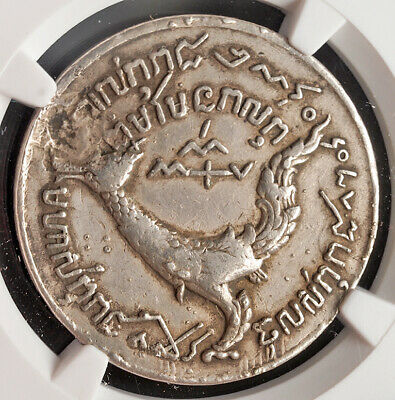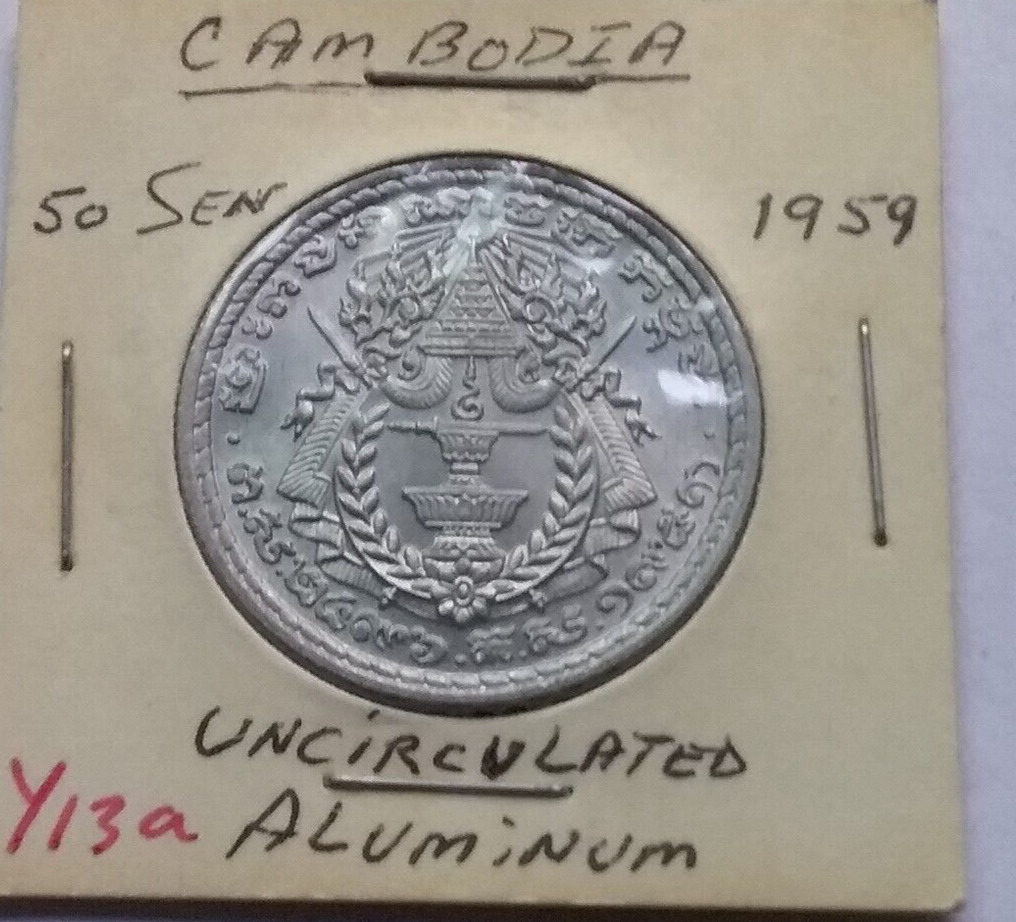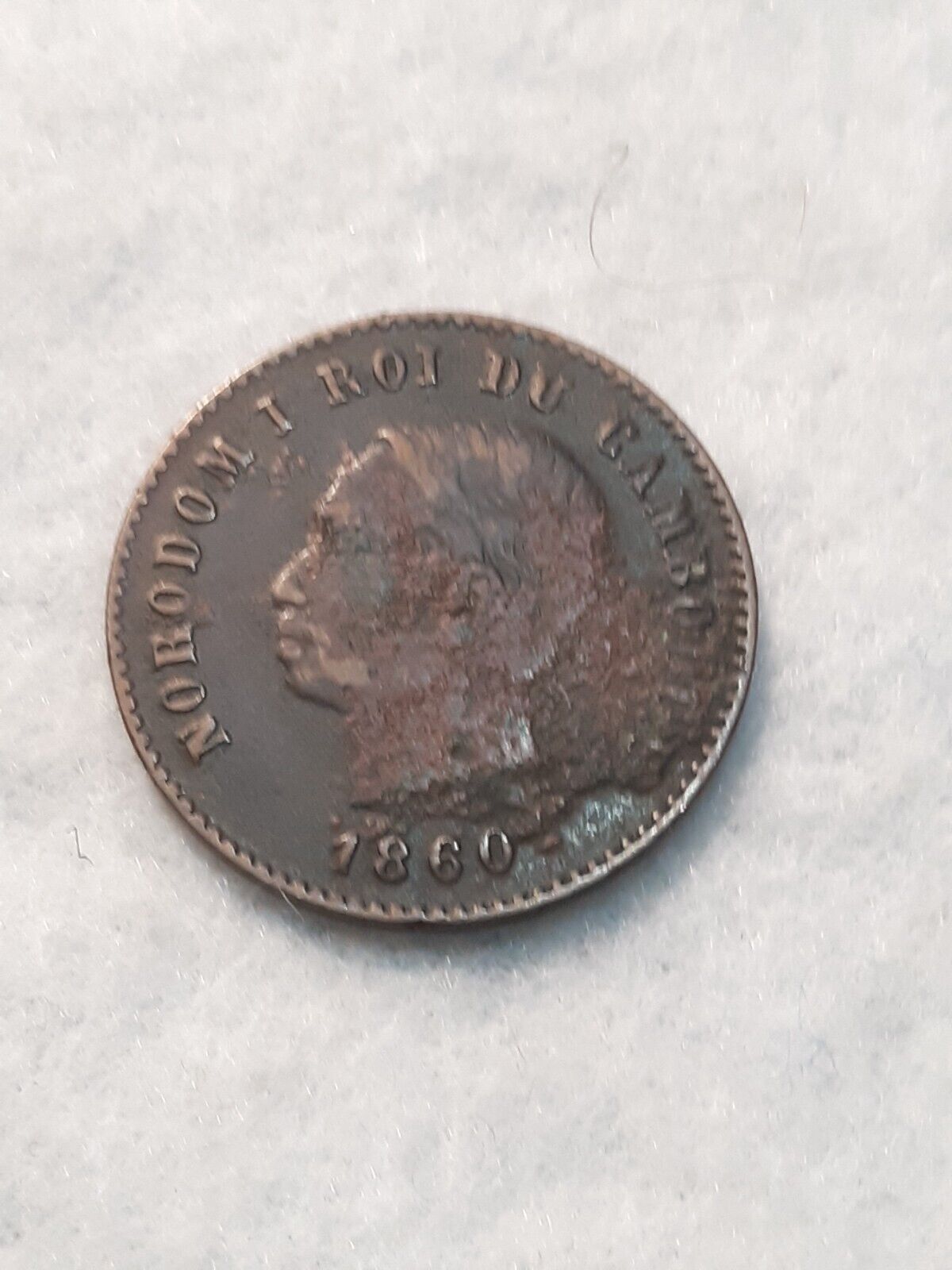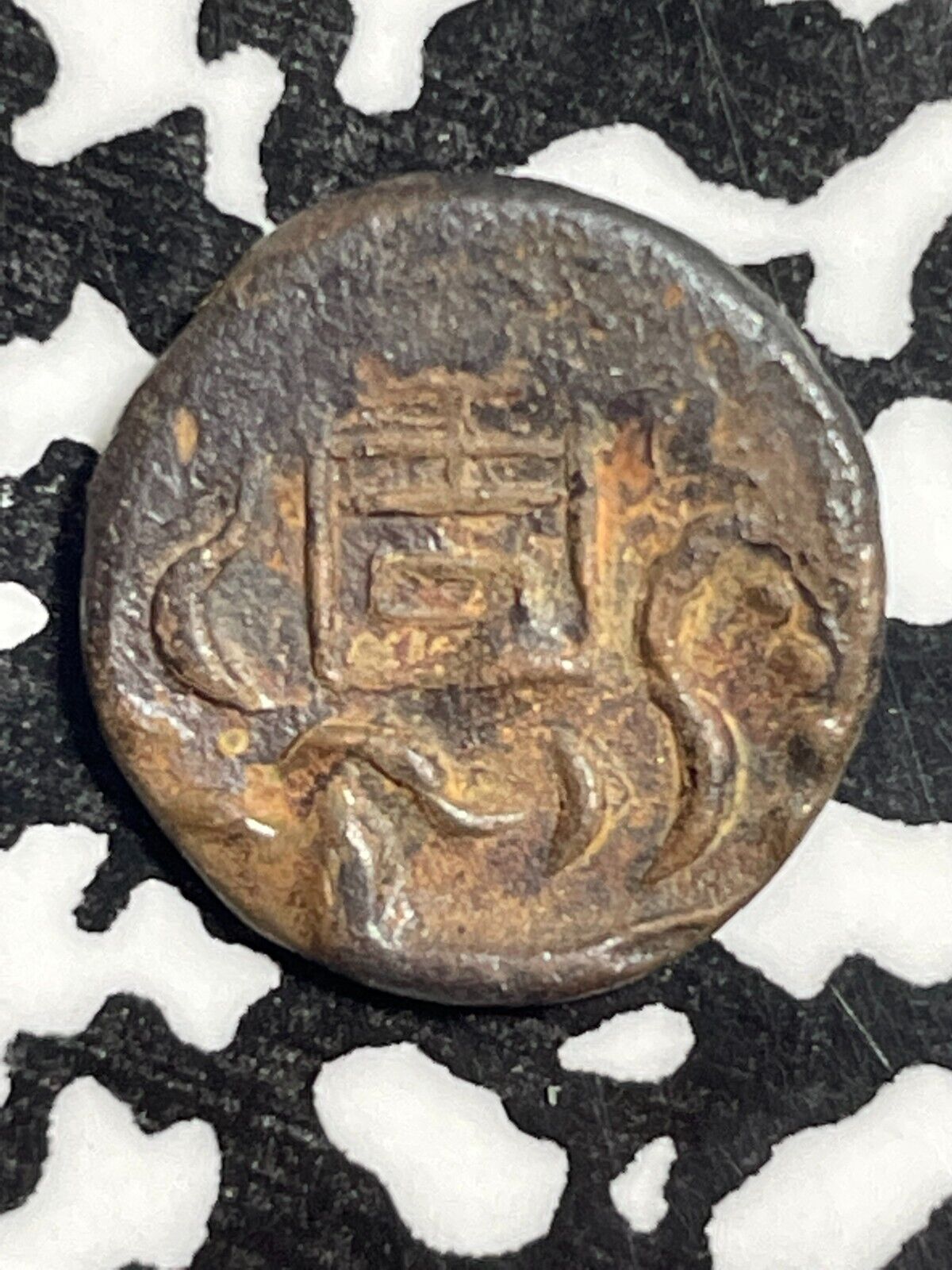-40%
1847, Kingdom of Cambodia, Norodom I. Rare Silver Tical (4 Salong) Coin. NGC XF+
$ 264.34
- Description
- Size Guide
Description
CoinWorldTV1847, Kingdom of Cambodia, Norodom I. Rare Silver Tical (4 Salong) Coin. NGC XF+
Mint Place: Udong
References: KM-37.
Mint Year: 1847 (CD 1208)
Denomination: Tical (4 Salong)
Condition:
Certified and graded by NGC as XF (Details: Plugged!)
Composition: Silver
Weight: ca. 15gm
Diameter: 35mm
Obverse:
Hamsa bird standing left. Siamese inscriptions around.
Reverse:
Palace of Angkor with the City name inscribed in the doorways ("
Intakpath
" = Angkor) and in centre doorway ("
Kung Kampuchia
" = Kingdom of Cambodia).
The
hamsa
(Sanskrit: हंस,
haṃsa
or hansa) is an aquatic bird of passage, such as a goose or a swan. Its icon is used in Indian and Southeast Asian culture as a spiritual symbol and a decorative element. The hamsa, or the swan, is often identified with the Supreme Spirit, Ultimate Reality or Brahman in Hinduism. The flight of the hamsa symbolizes moksha, the release from the cycle of samsara. The hamsa is also the vahana of Saraswati – the goddess of knowledge and creative arts, and her husband Brahma – the god with powers of creation, in Hindu trinity.
Authenticity unconditionally guaranteed
.
Bid with confidence!
Cambodia
(Khmer:
កម្ពុជា
,
Kampuchea
), officially known as the
Kingdom of Cambodia
(Khmer:
ព្រះរាជាណាចក្រកម្ពុជា
, Preăh Réachéanachâk Kâmpŭchéa) and once known as the Khmer Empire, is a country located in the southern portion of the Indochina Peninsula in Southeast Asia. Its total landmass is 181,035 square kilometres (69,898 sq mi), bordered by Thailand to the northwest, Laos to the northeast, Vietnam to the east, and the Gulf of Thailand to the southwest.
With a population of over 15 million, Cambodia is the 70th most populous country in the world. The official religion is Theravada Buddhism, practised by approximately 95 percent of the population. The country's minority groups include Vietnamese, Chinese, Chams, and 30 hill tribes. The capital and largest city is Phnom Penh, the political, economic, and cultural centre of Cambodia. The kingdom is a constitutional monarchy with Norodom Sihamoni, a monarch chosen by the Royal Throne Council, as head of state. The head of government is Hun Sen, who is currently the longest serving non-royal leader in South East Asia and has ruled Cambodia for over 25 years.
Cambodia's ancient name is "Kambuja" (Sanskrit:
कंबुज
). In 802 AD, Jayavarman II declared himself "King" and marked the beginning of the Khmer Empire which flourished for over 600 years, allowing successive kings to dominate much of Southeast Asia and accumulate immense power and wealth. The Indianized kingdom built monumental temples including Angkor Wat, now a World Heritage Site, and facilitated the spread of first Hinduism, then Buddhism to much of Southeast Asia. After the fall of Angkor to Ayutthaya in the 15th century, Cambodia was then ruled as a vassal between its neighbours.
Cambodia became a protectorate of France in 1863, and gained independence in 1953. The Vietnam War extended into Cambodia with the US bombing of Cambodia from 1969 until 1973. Following the Cambodian coup of 1970, the deposed king gave his support to his former enemies, the Khmer Rouge. The Khmer Rouge emerged as a major power, taking Phnom Penh in 1975 and later carrying out the Cambodian Genocide from 1975 until 1979, when they were ousted by Vietnam and the Vietnamese backed People's Republic of Kampuchea in the Cambodian–Vietnamese War (1979–91). Following the 1991 Paris Peace Accords Cambodia was governed briefly by a United Nations mission (1992–93). The UN withdrew after holding elections in which around 90 percent of the registered voters cast ballots. The 1997 coup placed power solely in the hands of Prime Minister Hun Sen and the Cambodian People's Party, who remains in power as of 2015.
The country faces numerous challenges and sociopolitical issues, including widespread poverty, pervasive corruption, lack of political freedoms, low human development, and a high rate of hunger. Cambodia has been described by Human Rights Watch's Southeast Asian Director, David Roberts, as a "vaguely communist free-market state with a relatively authoritarian coalition ruling over a superficial democracy."
While per capita income remains low compared to most neighbouring countries, Cambodia has one of the fastest growing economies in Asia with growth averaging 6 percent over the last decade. Agriculture remains the dominant economic sector, with strong growth in textiles, construction, garments, and tourism leading to increased foreign investment and international trade.
Cambodia scored dismally in an annual index (2015) ranking the rule of law in 102 countries, placing 99th overall and the worst in the region. 'The World Justice Project's Rule of Law Index, which is based on surveys with ordinary people and in-country experts, ranks countries based on eight key indicators including constraints on government powers, an absence of corruption, and regulatory enforcement.' 'In every factor measured, Cambodia scored the worst in the East Asia and Pacific region, where other ranked nations include Myanmar, Vietnam and Mongolia.' The report notes that "[w]here the rule of law is weak, medicines fail to reach health facilities, criminal violence goes unchecked, laws are applied unequally across societies, and foreign investments are held back."
Only 1$ shipping for each additional item purchased!












